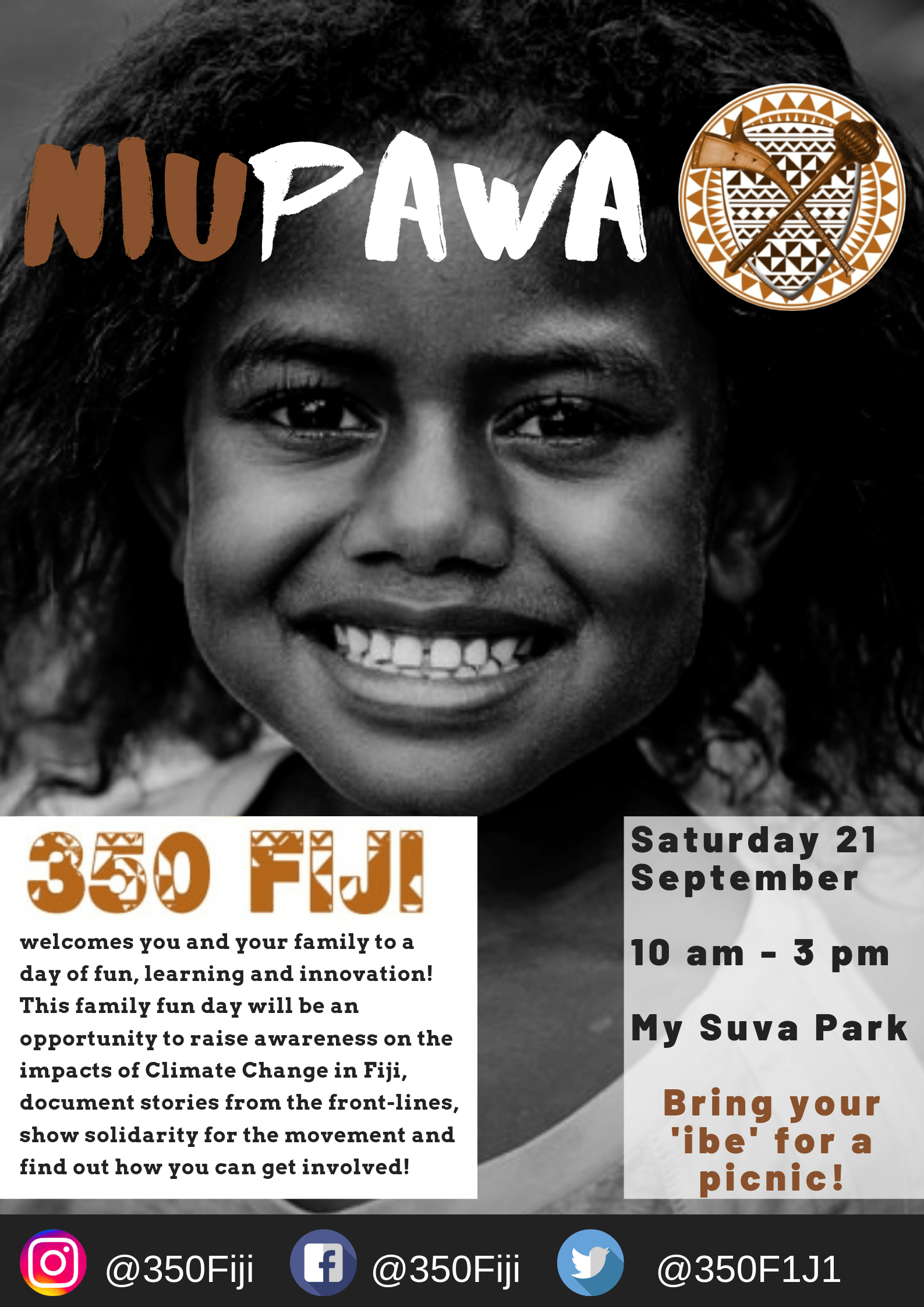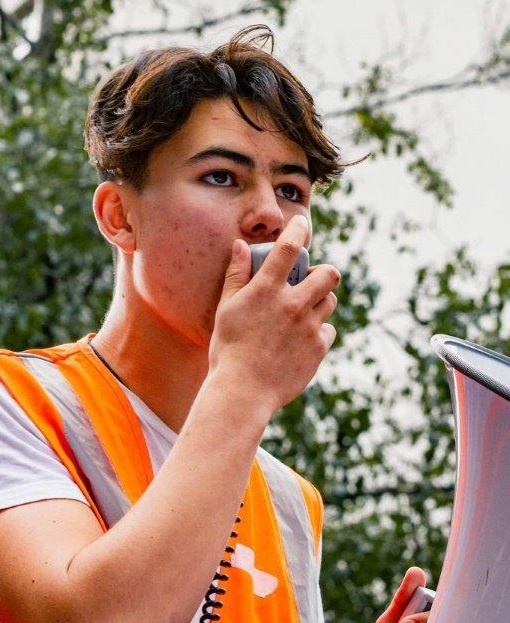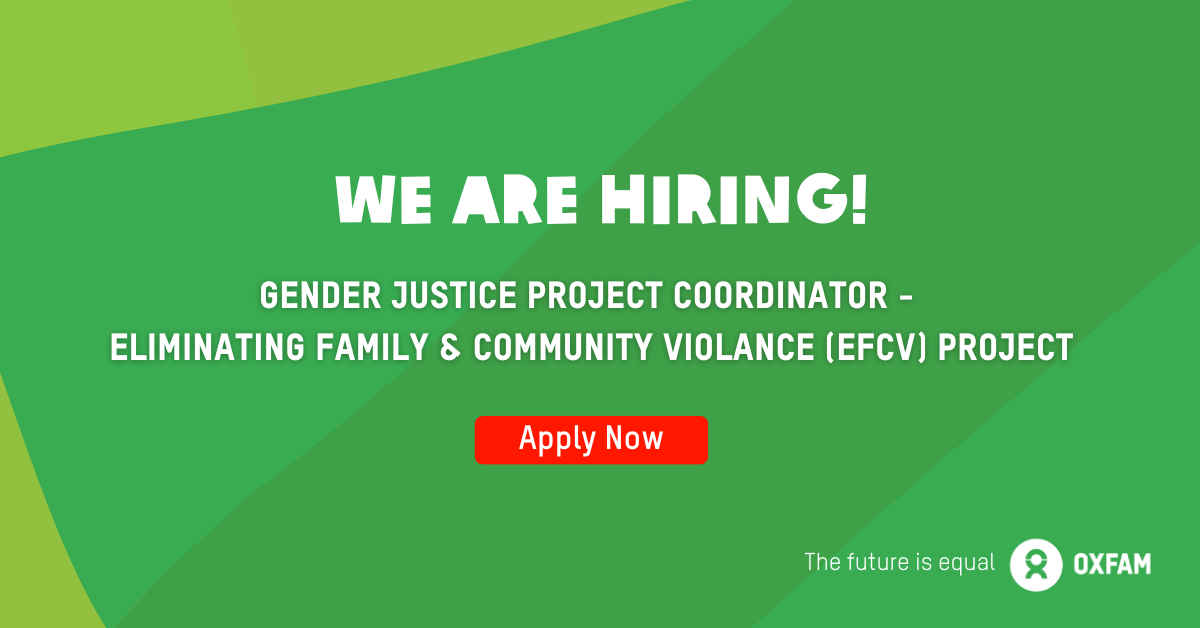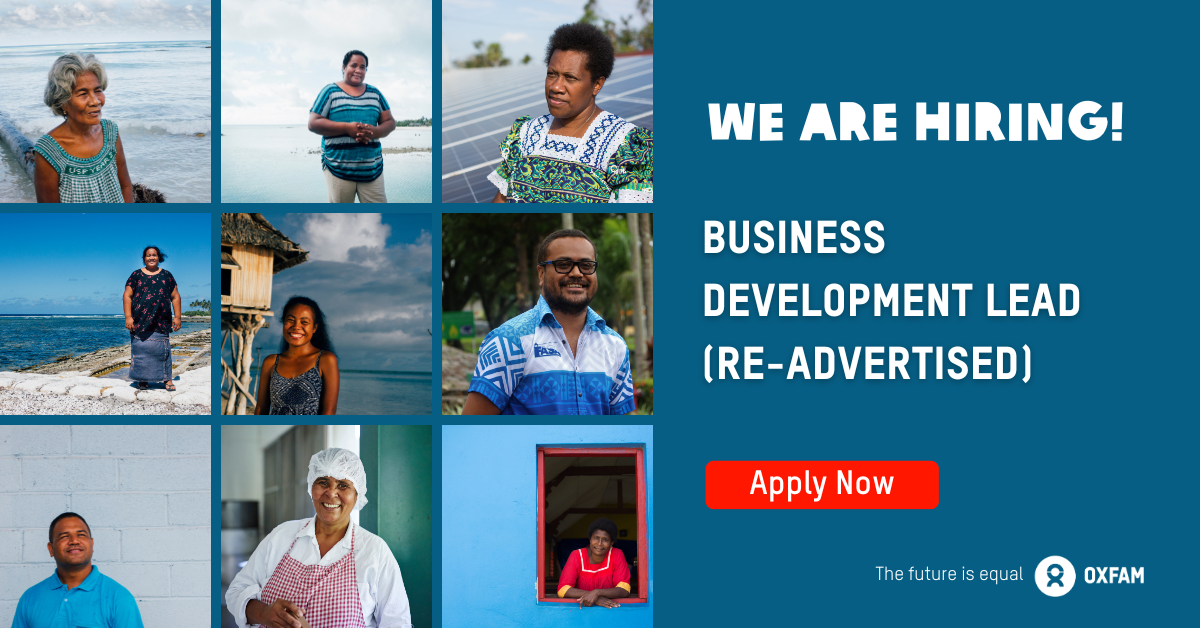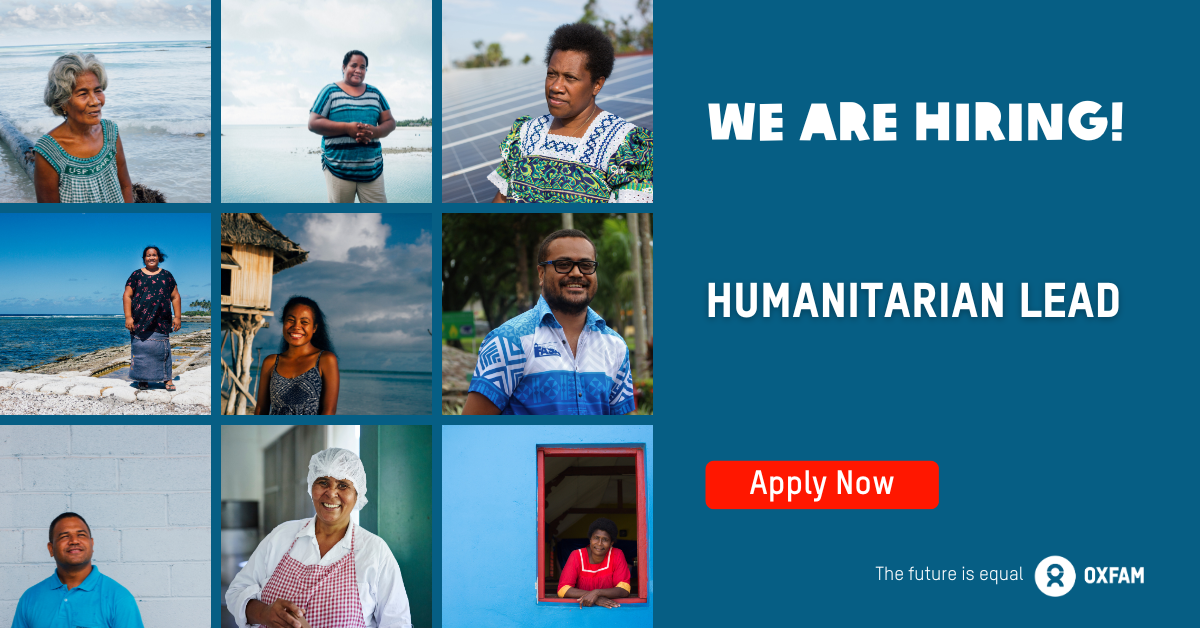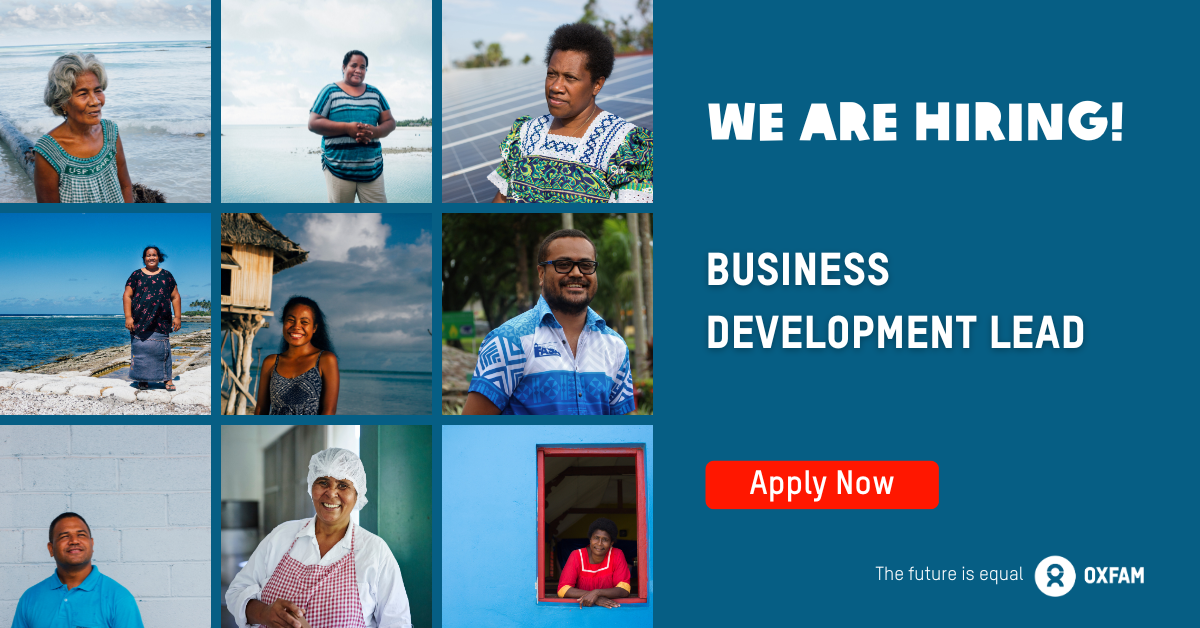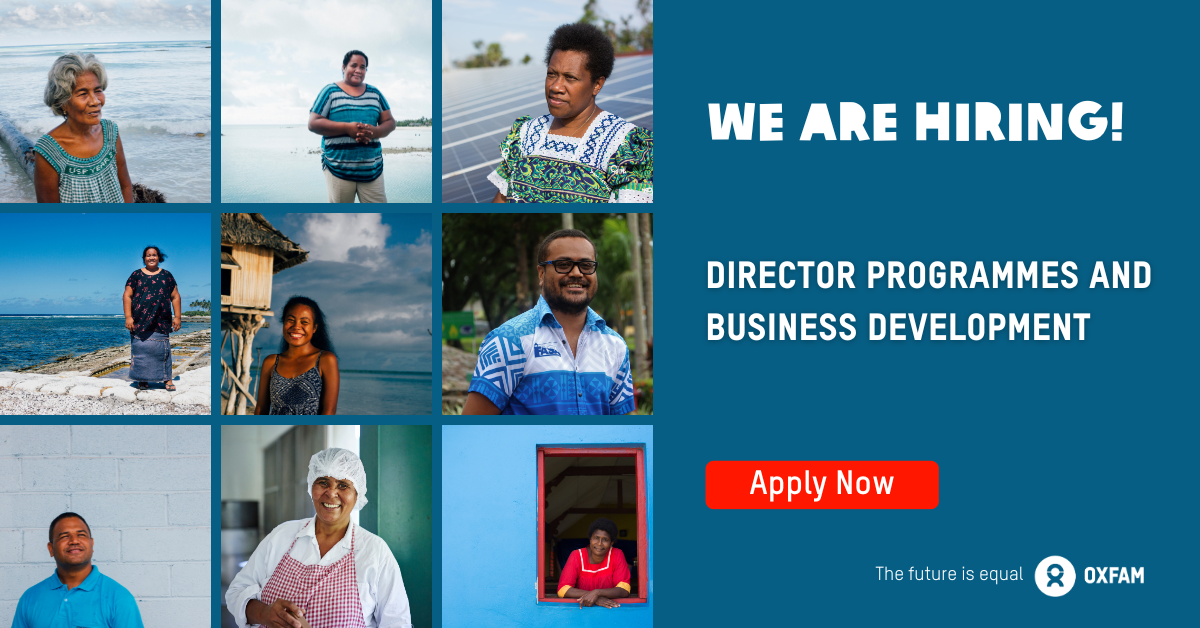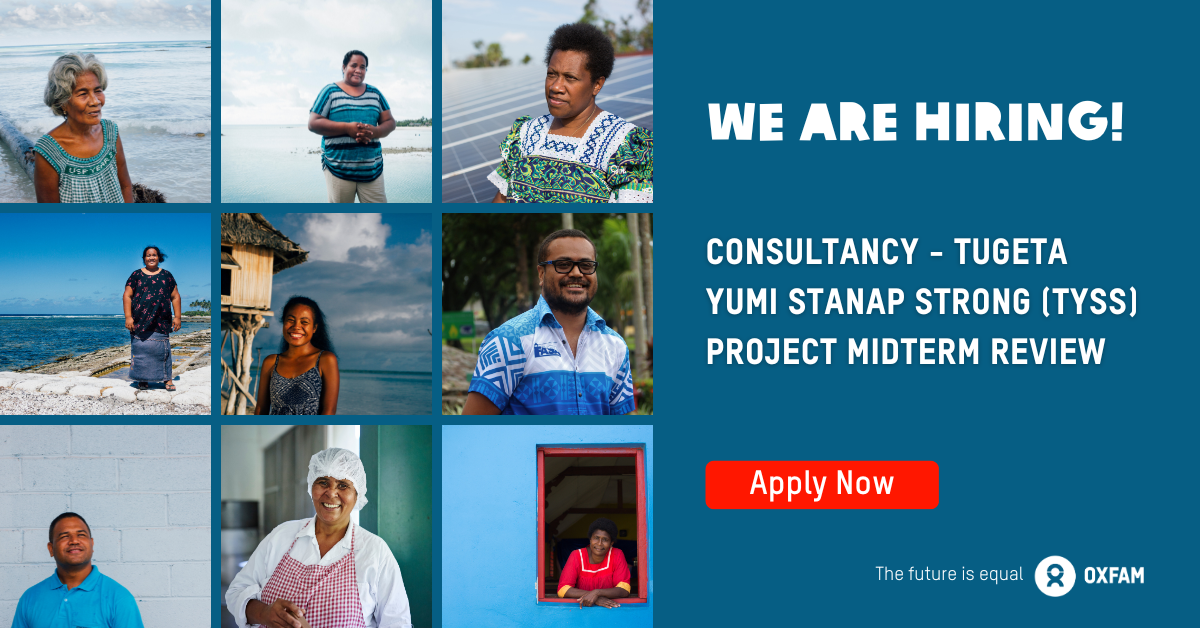Written by ERNEST GIBSON – Oxfam in the Pacific and Pacific Youth Council Technical Advisory Group; and CHRISTOPHER TENISIO – 350 Pacific Climate Warriors Auckland
In the Pacific, we are taught to recognise the value of narratives and stories from the day we are born.
You need to know who you are: your mother would tell you of the voyage of your people – every lick of the ocean, every patch on your sail, each person whose life gave way to yours.
You have a feud with someone in your village: your grandfather will tell you the story of the way that your families are connected and how the bond you share is one that transcends minor squabbles. He will tell you the story of how, in our cultures, relationships are integral to our survival.
The climate crisis is no different. It is a story – an ongoing story, but one that we have the unique opportunity to write the final chapters of.
All around the world millions of people are mobilising from September 20th to the 27th in the Global Climate Strike, doing their part in the fight against climate breakdown.
As the eyes of the world focus in on young students leading strikes around the globe, young people in the Pacific are also joining in these moments and are mobilising to confront climate breakdown in their own way.
Our communities in the islands have been bearing witness to the realities of climate breakdown for many years. We are grappling with the effects right now – rising sea levels, salt-water intrusion and devastating cyclones – and we are standing strong in our stories about our people living on the frontlines.
When the rest of the world is calling for their governments to take more action, what does it look like to mobilise within a region that contributes so little to the global carbon footprint, yet is facing some of the harshest consequences?
In Fiji, 350 Fiji, in conjunction with Oxfam in the Pacific, the Pacific Islands Climate Action Network and Alliance for Future Generations, is hosting the Niu Pawa Festival, bringing families together with a focus on creating awareness about climate breakdown, its impacts and how to get involved in climate activism.
Niu, the Fijian word for coconut, is symbolic of the tree of life, our culture and the important role that it plays in informing and directing climate action. It plays on the English word “new”, implying that we need to adjust our perspective and practice to be innovative and dynamic in our approaches.
Pawa means strength and power – this movement is about giving power back to the people and generating mass mobilisation.
Meanwhile, Pacific diaspora communities are joining with the School Strike 4 Climate movement to call on greater action from governments. From New Zealand to the United States, the 350 Pacific Climate Warriors will join the school strikers, other indigenous groups and millions of parents, workers, teachers and community leaders to gather as one, share frontline truths from people of the Pacific and strike for climate justice, for everyone.
Their movement is being powered by a mantra shared all around the Pacific, as well as the Pacific diaspora of Australia, New Zealand and the United States – mātagi malohi, or “strong winds” in Tokelauan. “You are matagi mālohi. Strong winds. A symbol of our movement blurring identities, validating purpose and strengthening stewardship over this land we are called to protect.”
Pacific peoples are at the forefront of this story about climate breakdown. We are shifting the narrative from one that paints us as mere victims of climate destruction to one that recognises our active response. While our cultures and identities face an existential threat, we are actively drawing on our indigenous knowledge and time-tested traditions to mitigate the impacts of climate destruction and to strengthen our resilience.
The climate crisis story is unfolding around us. But we are all also the main characters in this story. We are the solution. We can be the heroes and the authors of our future. For some, that looks like joining the Global Climate Strike, to get in behind this current moment. For others it looks like galvanising families to become climate warriors, documenting stories from the front-lines and showing solidarity with this global movement. This is the moment to stand up and demand climate justice for everyone, everywhere.

